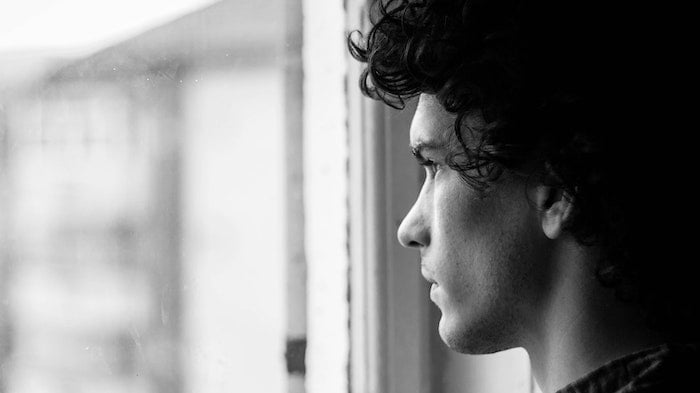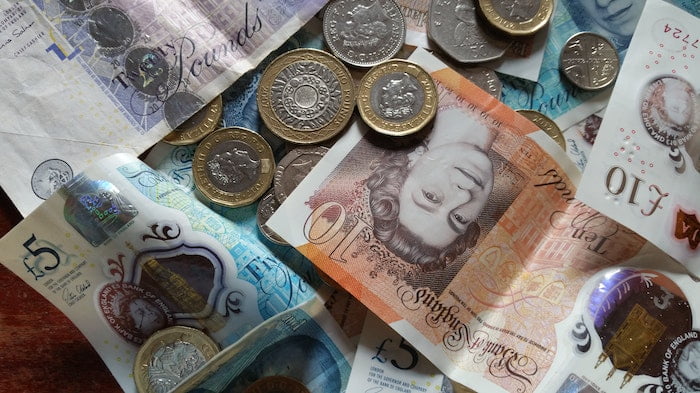Drug & Alcohol Rehab in Buckingham
Rehabilitation is the process of overcoming a specific disorder using specialised and focused techniques, working to discover and overcome the root cause.
This is one of the most recommended options when it comes to disorders such as addiction.
Addiction is a unique disorder, able to affect individuals from all different social and cultural backgrounds, and there is no ‘cure’ to drug or alcohol addiction.
Through drug and alcohol rehab in Buckingham, individuals are assisted in creating their own coping mechanisms and techniques to help them live with their addiction in the long term, without the strains of cravings, temptations, or the negative effects that can occur as a result of addiction.
The most common approach to rehabilitation is abstinence i.e., complete and permanent resistance to the consumption of the substance that the individual is addicted to, though many other factors are essential to a stable remission – both socially and personally.
For more information about drug and alcohol rehab in Buckingham, contact us today at 0800 088 66 86
What Happens During Alcohol & Drug Rehab in Buckingham

Addiction is something that can impact anyone at any time.
Even social drinking can quickly become binge drinking, which can easily turn into alcohol dependency. The same is true for any substance.
When an individual chooses to undergo drug and alcohol rehab in Buckingham, they will be met with a multitude of treatment options.
However, there are some key factors that an individual should look out for when trying to find the most suitable, effective, and personalised rehabilitation programme for them.
Through Rehab Recovery, for example, we refer individuals to rehabilitation programmes that exclusively follow these three stages:
- Detoxification
- Rehabilitation/therapy
- Aftercare
Rehab Recovery believes, through research-based means, that only by following these steps in order and with full commitment will an individual be able to rehabilitate successfully and efficiently.
The Admissions Process in Buckingham

It is important for those considering rehab to understand the admissions process in Buckingham.
Upon admission, individuals are assessed by professionals to determine whether or not they’re suitable for rehab, and what kind of treatments are needed.
In order to do so, professionals will often use the American Society of Addiction Medicine (ASAM) Criteria and Dimensions to find out what kind of help you need the most.
The ASAM Criteria consists of six dimensions that delve deep into your addiction.
These dimensions are listed below:
Dimension 1 – Detox Potential
The first dimension delves deep into your ability to detox and overcome your detox in a safe and controlled environment. This will help the team determine what level of treatment you need, as well as what type of medication you might need.
Dimension 2 – Health & Wellbeing
Dimension two aims to find out how healthy you are physically and mentally. This will consist of questions surrounding your health and mental state, as well as some possible health tests.
Dimension 3 – Psychological Wellbeing
Next, your psychological wellbeing will be assessed in a private, one to one environment. Professionals will want to determine whether or not you are currently suffering from a mental health issue.
Dimension 4 – Your Commitment to the Cause
Your commitment to recovery will also be assessed, as this is a large determining factor in anyone’s recovery.
Dimension 5 – Relapse Potential
The fifth dimension will try to determine your relapse potential, and whether or not you’ve ever relapsed in the past.
Dimension 6 – Home Environment & Potential Triggers
The final dimensions will determine what kind of environment exists at home, and whether or not you are able to cut out any triggers that may exist at home.
Once a professional will assess you on these six dimensions, if you qualify for 2-3 of them, your addiction will be deemed mild and other treatment options will be proposed.
If you qualify for 4-5 of the dimensions, then your addiction is deemed moderate and you may be admitted into rehab.
If you qualify for 5 or more of the above dimensions, then your addiction is deemed severe and you will very likely enter a rehab facilitation centre.
ASAM is just one of many psychiatric assessments that can be used for diagnosing addiction. The specific nature of the assessment will vary, but often consists of pre-set assessment frameworks like the AUDIT (Alcohol Use Disorders Identification Test), the Diagnostic and Statistical Manual of Mental Disorders, 5th Edition (DSM-5), or the CAGE Questionnaire.
These assessments allow your psychiatrist and rehab specialists to create a person-centred care plan that is specialised to address your specific needs.
To begin your recovery process through admission into rehab in Buckingham, call us on 0800 088 66 86
Medical Alcohol & Drug Detox in Buckingham

During the first step of the rehabilitation process – detoxification – individuals will slowly withdraw from the substance they are addicted to. This reduces the risks of negative physical health complications, as well as preparing the individual for the remainder of their rehabilitation journey.
This is only applicable for addiction that cause physical dependence, such as alcohol misuse, heroin addiction, ketamine abuse and benzodiazepine addiction,
If you are suffering from cocaine dependence, crack cocaine addiction, ecstasy addiction or cannabis use disorder, you will not require a medical detox.
This is also true of process and behavioural addictions, such as gambling addiction, shopping addiction, sex addiction and others.
In some cases, it may be suitable for the detox process to be medically assisted due to the dangers of withdrawal from some substances. This is known as a medically assisted detox.
For alcohol detox, this will involve the use of drugs such as Librium, also known as Chlordiazepoxide, which is extremely effective at reducing the effects of alcohol withdrawal syndrome.
For heroin detox and recovery from other opioid use disorders, substances like methadone and buprenorphine are widely used for the same reasons, making heroin withdrawal a much safer process.
These drug and alcohol withdrawal symptoms range from mild to moderate and severe and often include:
- Feeling or being sick
- Feeling paranoid
- Feeling anxious
- Feeling restless
- Diarrhoea
- Chills and sweats
- Headaches
- Increased heart rate and heart palpitations
- Excessive shaking
- Insomnia
- Nightmares
- Flu-like symptoms
- Delirium tremens
- Wernicke’s Encephalopathy
Many other physical issues are also often present alongside substance use disorder – and therefore must be considered during detox – including:
- Liver failure
- Hepatitis
- Heart issues
- Blood pressure issues
- Brain damage
- Gastrointestinal issues
For more information about drug and alcohol rehab in Buckingham, contact us today at 0800 088 66 86.
Is Drug Rehab Necessary in Buckingham After Detox?

It is common that some individuals, after a detox, may feel satisfied with their rehabilitation progress and quit before continuing any further steps.
This is never recommended through drug and alcohol rehab in Buckingham as addiction is a multi-dimensional disorder, affecting both the individual’s physical and mental health.
Where a detox focusses on the physical health effects of an addiction, further therapy and treatment is needed to focus on the mental health effects – many of which are often responsible for the development of an addiction in the first place or generally co-occur in a phenomenon known as dual diagnosis.
The reasons for the strong link between addiction and other mental health issues are still heavily debated.
For these reasons, Rehab Recovery always recommends that individuals continue with further rehabilitation after a detox, even if they feel that they are ‘back to normal’ or are able to continue on their own.
Addiction Therapy & Treatment Options in Buckingham

If an individual chooses to continue with the stages of rehab through drug and alcohol rehab in Buckingham, then there are many potential options for treatment around the area, as well as across the rest of the UK.
This may be in a treatment centre, or as part of outpatient care.
The most common form of rehabilitative treatment after detox is therapy – though this can come in many forms, each of which will have varying levels of success and applicability to different individuals.
A more modern approach to therapy is the rising number of rehabilitative establishments offering holistic therapies.
This is the application of other activities such as art, music, yoga, and horse riding alongside more familiar therapeutic practises that allow for a different approach to rehabilitation and a more successful outcome in some cases.
For more information about drug and alcohol rehab in Buckingham, contact us today at 0800 088 66 86
Addiction Therapies We Offer in Buckingham

As mentioned above, there are countless different forms of therapy, each of which may or may not be suitable for each individual’s case.
Through drug and alcohol rehab in Buckingham, individuals are able to try out a range of different therapy sessions, determining which are most effective and which may not be suitable for their situation.
Below is a list of just some of the most common talking therapies and psychiatric treatments used across rehab centres in Buckingham and the rest of the UK.
- Group Therapy and Group Psychotherapy
- Family Therapy
- Individual Therapy
- Codependency Treatment
- Cognitive Behavioural Therapy
- Brief Intervention
- Motivational Interviewing, Motivational Enhancement Therapy and other forms of motivational therapy
- Eye Movement Desensitisation and Reprocessing
- TSF (Twelve-Step Facilitation Therapy)
- Dialectical Behavioural Therapy
- Acceptance and Commitment Therapy
- Contingency Management
- Rational Emotive Behaviour Therapy
- Holistic and alternative therapies (music therapy, art therapy, mindfulness, meditation, yoga, acupuncture, equine therapy, drama therapy, etc)
Not every individual who progresses through drug and alcohol rehab in Buckingham will experience every single one of these treatments, but they are likely to have come across a few of them or heard of them during their time in rehabilitation.
Cost of Alcohol & Drug Rehab in Buckingham

The cost of drug and alcohol rehab in Buckingham will differ in each individual case. This is due to the treatment programmes that each individual opts for, including any additional rehabilitative services included within these programmes, as well as the personal differences that each individual displays.
For rehabilitation facilities specifically, there are thousands of ways in which the individual’s treatment programme can be specialised, leading to massive differences in the cost of rehab for each individual.
For these reasons, predicting the cost of rehab can be incredibly difficult, especially when considering that some individuals may require additional support or services once enrolled in an addiction programme, perhaps something that has not been considered before entering rehab.
In any case, the cost of drug and alcohol rehab in Buckingham can be supported by Rehab Recovery and we are ready and waiting to discuss any financial issues or questions that an individual may have.
For more information about drug and alcohol rehab in Buckingham, contact us today at 0800 088 66 86
How Long is Drug & Alcohol Rehab?

As with the cost of rehab, predicting how long an individual may be rehabilitating is challenging. This is also due to the individual differences that individuals exhibit when struggling with addiction, as well as the type of treatment that they opt for.
However, for residential drug and alcohol rehab in Buckingham, Rehab Recovery can provide a rough estimate.
Rehab Recovery recommends a stay of 28 days in a residential centre; this is the amount of time that is allocated to undergoing a full detox, experiencing different treatment programmes and therapies, and any additional support that they may require during this time.
Why Choose a Private Drug & Alcohol Rehab in Buckingham?

If an individual chooses private drug and alcohol rehab in Buckingham, then they can be assured that they have chosen the most efficient and effective approach to rehabilitation.
This is because residential rehab is far more specialised to each individual case, leading to the creation of treatment programmes that are specialised to each individual.
This makes the process far more effective as the individual is only taking part in useful and suitable treatment programmes, with constant monitoring and adjustment should it be needed.
Other organisations to consider
Below is a list of other organisations that offer free support and advice for addiction in and around Buckingham:
1. Compass Young People Drugs Service
Address: 138A Queensway, Bletchley, Milton Keynes MK2 2RS
Telephone: 01908 379673
2. Drug Addiction Support
Address: 33-37 Farthing Grove, Netherfield, Milton Keynes MK6 4JH
Telephone: 01908 250730
3. Turning Point – Banbury
Address: Banbury Health Centre, 58 Bridge St, Banbury OX16 5QD
Telephone: 01295 225544
Website: http://wellbeing.turning-point.co.uk/oxfordshire/hubs/banbury-hub/
You can also reach out to a number of remote services, including Mind UK, YoungMinds, Rethink Mental Illness, Samaritans, Papyrus, National Institute for Health and Care Excellence (NICE), Change Grow Live, Turning Point, We Are With You and the National Association for Children of Alcoholics.
The NHS (National Health Service) also provides free, reliable information for drug and alcohol addictions and dependencies, as well as limited support through various NHS Foundation Trusts.
If you are suffering from too many temptations and triggers in your home life, you may also be able to gain temporary residence in a sober living house.
For more information about drug and alcohol rehab in Buckingham, contact us today at 0800 088 66 86
Dual Diagnosis At a Drug & Alcohol Rehab In Buckingham

When an individual suffers from addiction as well as a separate mental health issue, then it is defined as a co-occurring disorder or a dual diagnosis.
Mental health disorders that are commonly linked to addiction include:
- Schizophrenia
- Bipolar Disorder
- Eating disorders
- Depression
- Generalised Anxiety Disorder (GAD)
- Borderline Personality Disorder (BPD)
- Obsessive Compulsive Disorder (OCD)
- Attention Deficit Hyperactivity Disorder (ADHD)
- Post Traumatic Stress Disorder (PTSD)
- Codependency
At a drug and alcohol rehab in Buckingham, any co-occuring mental disorders you are suffering from will be treated alongside your addiction, giving you the best chance of maintaining your sobriety and living a healthier life.
To learn more about how mental health issues are supported and treated at drug & alcohol rehab in Buckingham, call us on 0800 088 66 86
What Help Do I Get Following the Completion of Drug & Alcohol Rehab in Buckingham?

After leaving a rehabilitative treatment programme through drug and alcohol rehab in Buckingham, either within a dedicated centre or through an outpatient source, no individual will be left alone.
In most cases, individuals are offered an aftercare programme, though these are also offered through local addiction services, as well as being able to be accessed personally.
Most residential rehab centres will offer complimentary aftercare, designed to help you engage in relapse prevention and maintain your sobriety in the long term.
Aftercare is any further treatment, learning, or experiences that an individual takes part in after rehabilitation and therapy that furthers their recovery. This can include a multitude of different services, and the two most common are outlined in the following subheadings.
1. Local Government Addiction Resources in Buckinghamshire
Through any local council individuals are able to access local addiction treatments and services.
For example, local councils are able to provide the services within their area, directing individuals to the most suitable for their individual case.
Though some areas may not always have the best access to rehabilitation and addiction support and care, they are also sometimes able to offer recommendations for nearby support or put individuals in contact with their next step.
2. 12-Step Meetings in and near Buckinghamshire
One of the most well-known and common forms of aftercare is engagement in a mutual support group such as Alcoholics Anonymous, Narcotics Anonymous, Cocaine Anonymous or SMART Recovery.
These groups are designed to encourage individuals who may be in similar situations to share their experiences, how they overcame certain obstacles, and any issues they are facing in their long-term recovery and lean on a higher power when addiction seems overwhelming.
Many Al-Anon Family Group Meetings are also held in and around Buckingham, as well as Alateen meetings that provide support specifically for adolescents.
This is a great way for individuals to meet others and gain back the social aspect of their life, as well as learn from the experiences of others, perhaps finding ways to apply these learnings to their own recovery, increasing the effectiveness.
Get in Touch

Rehab Recovery is a dedicated referral service, helping every individual to find the most appropriate and suitable form of rehabilitation for them. Our experienced team is friendly, professional, and trained in confidentiality to give you all the support you may need for struggles with addiction.
Whether you are seeking rehabilitative support for yourself, for a friend or family member, or for someone you know, please do not hesitate to get in contact as soon as possible. All drug and alcohol rehabs must be registered and audited by the Care Quality Commission (CQC).
Addiction is a disorder that can quickly worsen over time, meaning that getting the right help as soon as possible is of upmost importance.
We offer rehab support across Buckingham and the UK, including Mount Pleasant, Page Hill, Bourton, Badgers, Linden Village, Castle Fields, Lace Hill, Aylesbury, Milton Keynes, Banbury, Bicester and Bletchley.
To find out how we can help you or to get in touch with us today, give us a call on 0800 088 66 86, our dedicated addiction support hotline


